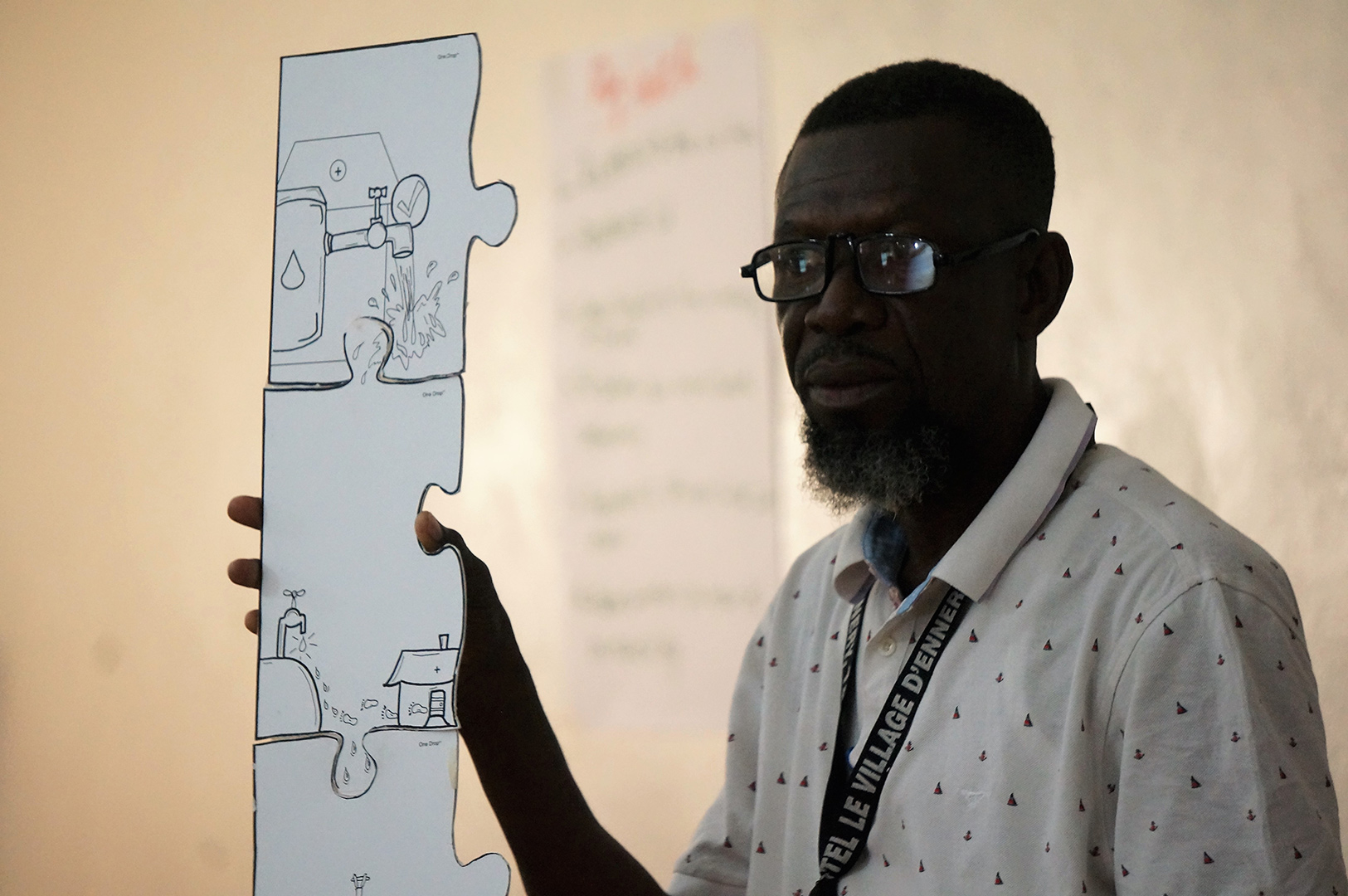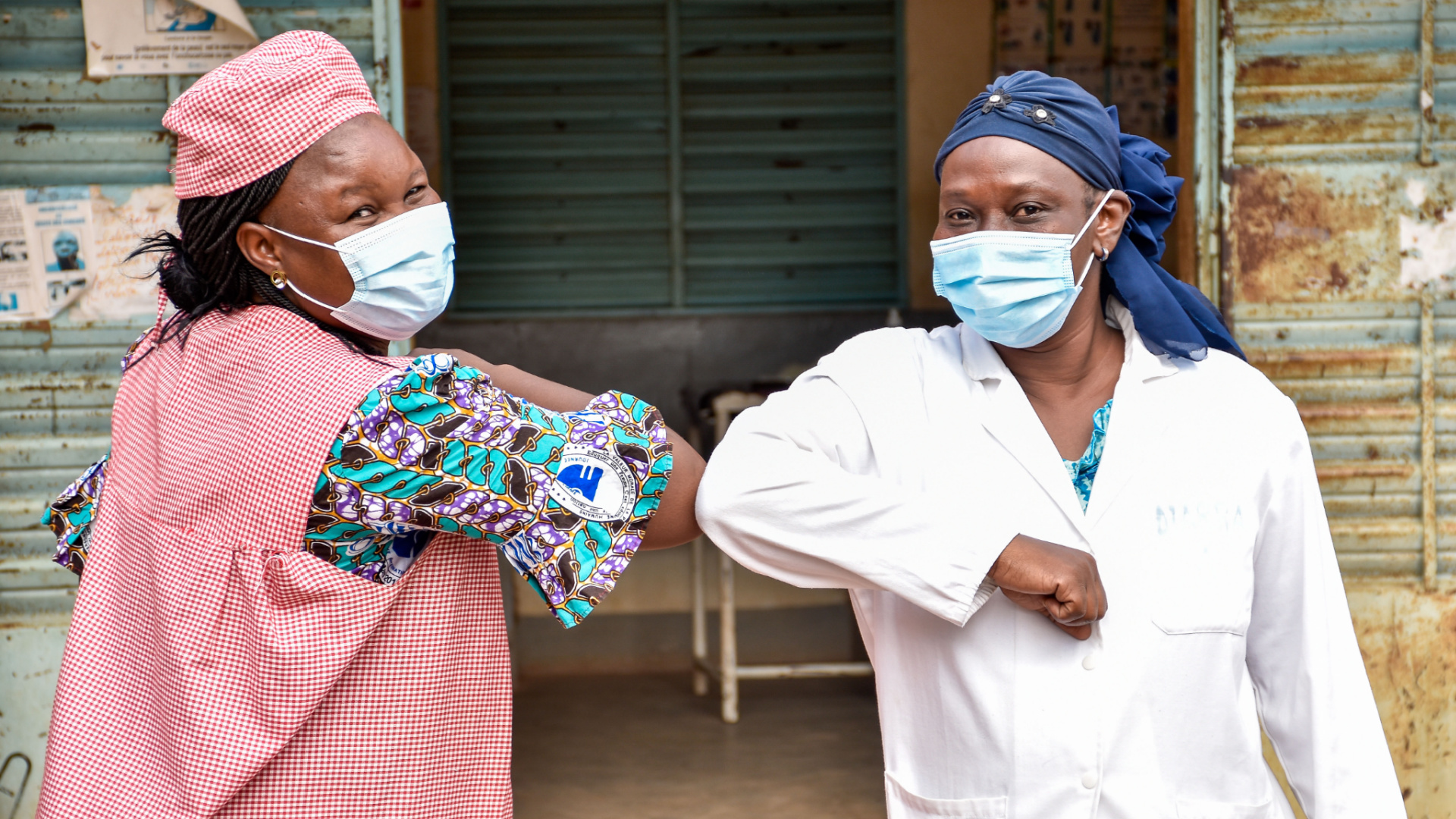The Art of Changing Behaviour and Lives

We interviewed Haitian musician, singer, composer Wadner Peyizan to learn about his experience writing, producing and broadcasting the video for Yon jes pou la sante. This production was part of a Social Art for Behaviour ChangeTM initiative of the PRISMA 2 Project, that is taking place in the Artibonite region of Haiti.
One Drop Foundation: What did creating this song, Yon jes pou la sante, mean to you?
Wadner Peyizan: Writing and performing Yon jes pou la sante meant a lot to me; it was important for me to get involved with Prisma 2 and the One Drop Foundation to help mobilize people around better hygiene practices. Given the current situation [the COVID-19 pandemic], the timing was perfect. Haitians needed to hear it and wanted to hear it, too. It was a chance to do something good. Today, I’m quite happy with the results, even though our work is not yet finished.
ODF: What did filming this video with the locals add to the overall experience?
WP: What impacted me most about filming this video with local health care workers was how important their presence was to the production. Making a video without the people who provide health care services to the population would be, as we say in Haiti, “like washing my hands before cleaning the floor”; it wouldn’t make any sense! Their presence and participation really inspired me and brought me joy.
ODF: How has this experience changed or reinforced your belief that everyone should be held accountable for keeping health care facilities clean and preventing all kinds of infections? How do you see music, song and video as being a part of the solution in Haiti?
WP: Young Haitians are passionate about music. This explains why lots of people are making music right now—but the music doesn’t necessarily send positive messages, which is one of the reasons there are so many problems in Haiti. That’s why it’s so important for artists to invest in reaching young people with constructive messages. This is especially true for young people who are often absent from school, but who are listening really closely to music these days. Songs set to video, for me, offer the best way to combat poor hygiene behaviours in Haiti.
ODF: Has there been any feedback on how this production has affected people since it was released on social media?
WP: Yes. I’ve gotten feedback not only from Haitians, but people all around the world, wherever the music has travelled. Particularly in the United States. I’ve done several radio interviews, and this has confirmed that the song is getting the job done when it comes to letting people know what they can do to promote better hygiene habits in their communities. The song has made a big impact so far, and I’m proud of this.
ODF: In the 2nd video you collaborated on, you personally spoke out to encourage people to practise safe behaviours and follow the country’s preventive actions to help prevent the spread of COVID-19. Do you think you were heard? For you, is there a difference between speaking as an artist and speaking as a citizen?
WP: Yes, people thanked me and told me that they were ready to put the good hygiene practices from the video into action, and that they were ready to learn more. In my view, I don’t think there’s a big difference between speaking as an artist and speaking as a citizen. For me, the citizen feeds the artist. In other words: without the notion of citizenship, there can be no artist! You can’t have one without the other. As an artist, I am inspired and encouraged by the life experiences and voices of other citizens.
Subtitles in French
ODF: If you were appointed Haiti’s Arts, Culture and Education Minister, or even Minister of Health, what decisions would you make when it comes to using art and culture as tools for your country’s development?
WP: I would encourage all artists to communicate constructive messages and I would show them how it would benefit them. I would talk to media outlets to educate them about playing music with important messages that could change the Haitian community, and I would show them how doing so would be to their benefit as well. If people see how things benefit them, they tend to do those things. In terms of culture, I would teach Haitian culture to all Haitians, starting with schoolchildren. These days, Haitian culture is largely unknown. I would teach our children how to dance Haitian, speak Haitian, sew Haitian clothes, dress Haitian, and I would showcase Haitian products. As for health, I would mobilize artists through hygiene awareness campaigns, and promote positive messaging in health care centres and communities. Education-wise, I would introduce reforestation into the curriculum and make a passing grade in the subject a requirement.
Interview by Pierre Inodyl Fils in collaboration with Luc Gaudet and Pascale Gravel-Richard

